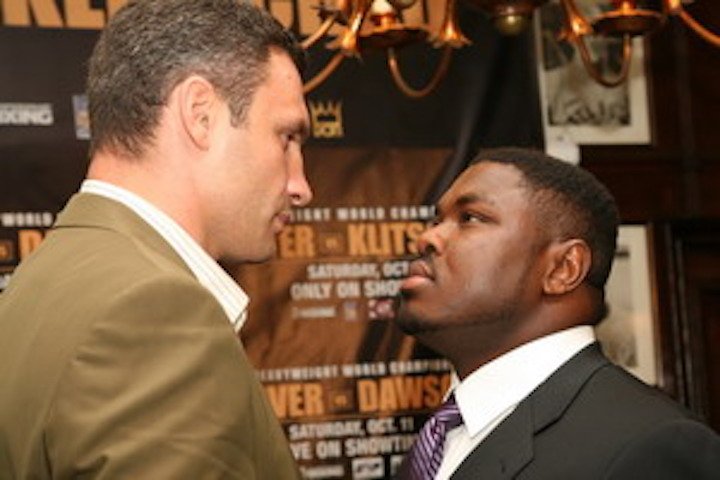Rewind to the mid-2000s, and Samuel Peter really was a heavyweight puncher to be reckoned with. Peter was a brutally powerful banger who had plenty of us convinced he would not only go all the way and rule the world, but that he would become the next dominant heavyweight. The thick-set, naturally aggressive puncher from Nigeria built up a 20-0 record after going pro in early 2001, winning all but two of these fights by KO – seven of them in the opening round (only the extremely durable Marion Wilson and the more experienced Charles Shufford managed to take Peter the distance).
Then, on December 4th of 2004, 24 year old Peter was matched with his biggest test yet. Enter Jeremy Williams. What followed was one of the most memorable heavyweight KO’s of the 2000s.

Williams had been beaten before, and he had been stopped before. But what Peter did to the man with the curious nickname, “Half-Man, Half-Amazing,” was especially chilling. The two met in Las Vegas, the vacant NABF heavyweight belt on the line. Williams, who had gone 6-0-1 prior to this fight, had put his stoppage losses to Henry Akinwande (in a failed WBO heavyweight title challenge) and Brian Nielson behind him. Peter would bring back painful memories for the 32 year old.
After a pretty close opening round, Peter suddenly and brutally ended matters in round two. Pressing forward, “The Nigerian Nightmare” landed a sledgehammer left hook clean on Williams’ exposed jaw. Instantly, Williams’ senses were obliterated and he went down, his arms stretched out in front of him. Down on his back, his eyes shut, Williams was waved off by the referee.
It was a highlight reel, one-punch KO. It was a beautiful left hook. It was a warning to all heavyweights that Sam Peter had arrived, that he was for real. Plenty of publications devoted a substantial amount of ink to the knockout, with one UK boxing magazine declaring how Peter was indeed dangerous enough to give his rivals nightmares. But was Peter good enough to win a world title?
Yes, he was. Peter lost a 12 round decision to Wladimir Klitschko in September of the following year, this not a world title fight but a WBC-NABF, WBO-NABO title fight, but along the way he scored three knockdowns. Peter had lost for the first time yet he had, in hindsight, given a fine fighter a very tough time of things (Wladimir of course going on to rule over the heavyweight division for a decade).
Peter went on to score two decision wins over James Toney, before beating Jameel McCline for the vacant WBC interim heavyweight title, and then Oleg Maskaev for the full WBC title. It wasn’t exactly a George Foreman-type coronation, and Peter’s reign did not last long (a returning Vitali Klitschko relieved Peter of the title in his first defence), but at least Peter could call himself a champ.
Should Peter have gone further, should he have done more? Moments after seeing him put Jeremy Williams’ lights out, Peter really did have fans thinking he was the next big thing.
